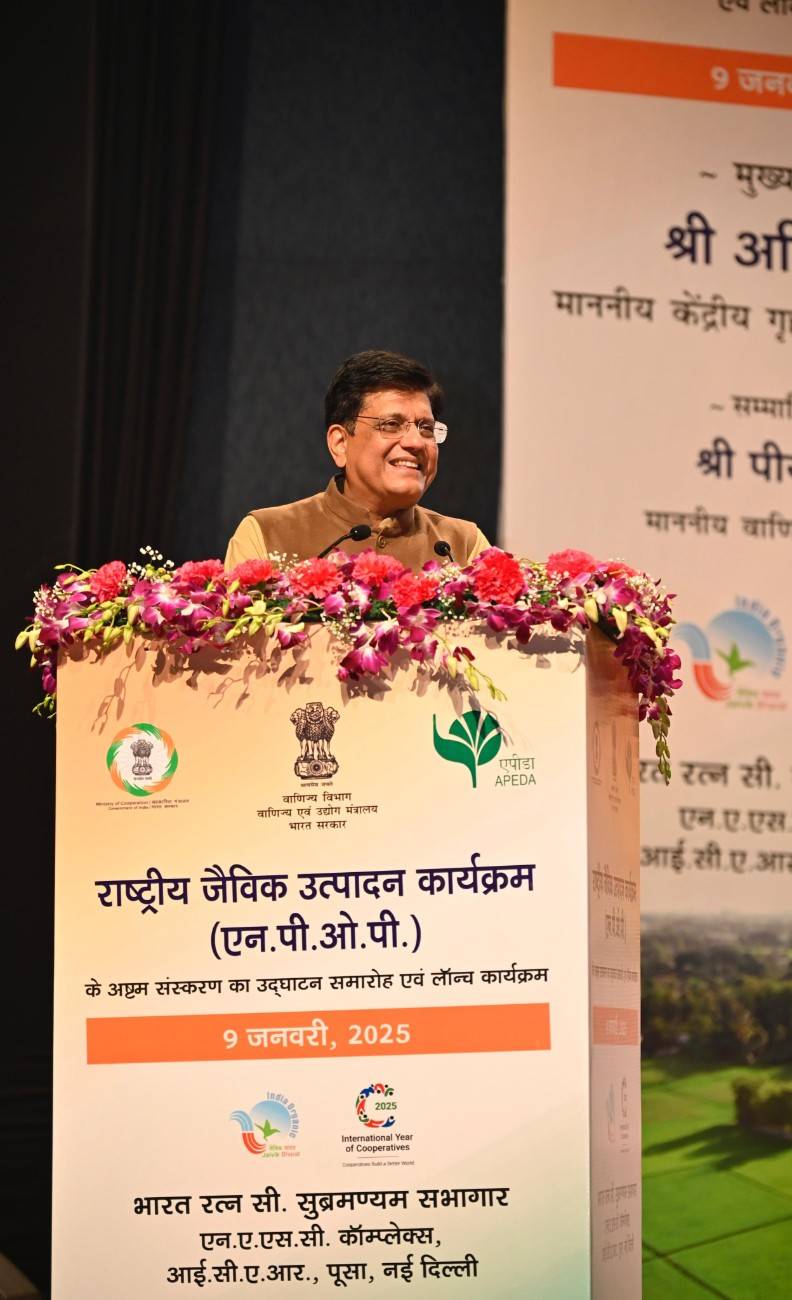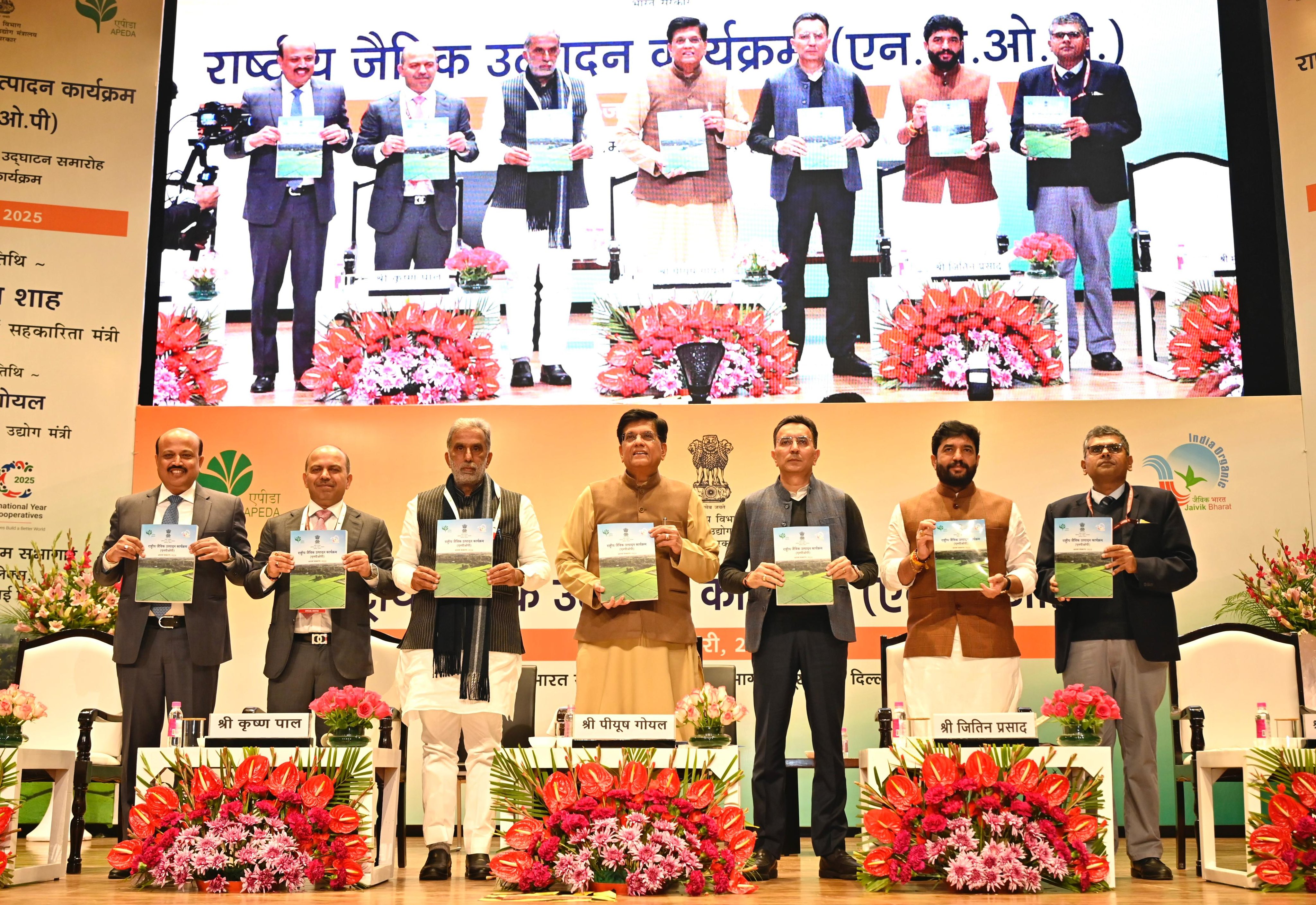
India targets ₹20,000 crore in organic produce exports by 2028
NEW DELHI : Union Minister for Commerce and Industry Shri Piyush Goyal has expressed confidence in India’s ability to triple its organic produce exports to ₹20,000 crore within three years as the country adopts natural farming on a larger scale.
Speaking at the launch of the 8th edition of the National Programme for Organic Production (NPOP), Goyal highlighted the potential for Indian farmers to dominate the global organic market by enhancing domestic production and increasing exports.
Currently, India exports organic produce worth ₹5,000-6,000 crore annually. However, with focused efforts on transitioning farmers to organic practices and strengthening support systems, Goyal is optimistic about achieving the ₹20,000 crore milestone.
India was the world’s eighth-largest agricultural exporter in 2023 despite a decline in exports from $51.12 billion in FY23 to $48.77 billion in FY24.
According to reports on 25 December that the government is planning to introduce a new agriculture export policy aimed at boosting the shipments of farm products and increasing farmer incomes.

The global demand for organic products, currently valued at ₹1 lakh crore ( ₹1 trillion), could grow tenfold. India, as the global leader in the number of organic farmers and ranking second in terms of organic cultivation area, is well-positioned to capture a significant share of this expanding market,” he said at the event organized by the Agricultural & Processed Food Products Export Development Authority (APEDA) in collaboration with the Federation of Indian Chambers of Commerce and Industry (FICCI).
To support this vision, the ministry of commerce and industry, along with the ministries of agriculture and cooperation, is working on initiatives that include skill development, training, marketing support, export facilitation and improved packaging for farmers and farmer producer organizations (FPOs).
At the event, the minister also unveiled a new NPOP portal aimed at enhancing visibility and operational efficiency for stakeholders in the organic sector. Additionally, TraceNet 2.0, an upgraded traceability platform, was launched to provide seamless regulatory oversight and operational tools. The first five registration certificates under TraceNet 2.0 were distributed during the event.
The NPOP, first introduced in May 2001, has seen several updates over the years, with the eighth edition representing a major overhaul of the regulatory framework for organic products in India. The previous revision was implemented in 2014.
This latest edition introduces key features such as farmer-friendly regulations, simplified certification processes, greater transparency and an upgraded traceability system to ensure better oversight.
With these enhancements, the eighth edition aims to strengthen India’s organic export sector and achieve an ambitious goal of $2 billion in organic food exports by 2030.
Rajesh Agrawal, Additional Secretary, Department of Commerce, and Chairman of the National Accreditation Body (NAB) under NPOP, underscored the importance of the new initiatives in propelling India toward becoming a global organic food hub. The revised NPOP includes provisions for reduced conversion time from non-organic to organic farming and offers flexibility for farmers to switch service providers or production groups, ensuring they receive fair compensation.
